Settling in for a good night’s sleep is about finding that comfortable sleeping position. However, to get to that sweet spot, you need the right pillow to support you.
Picking a pillow is a very personal and subjective choice. For some, a regular pillow is enough, while for others, it’s not. We can agree that having the right pillow can be the difference between tossing and turning all night versus getting some good zzz.
A lot of factors regarding pillows, such as their filling, thickness, or material, can affect the quality of your sleep. So, if you are looking for comfort and support, our list of pillow alternatives can come in handy, whether you are looking for natural alternatives or other things you can use instead of a pillow.
Natural Pillow Alternatives
These pillows are a great alternative if you are looking for something hypoallergenic and toxin-free.
1. Buckwheat
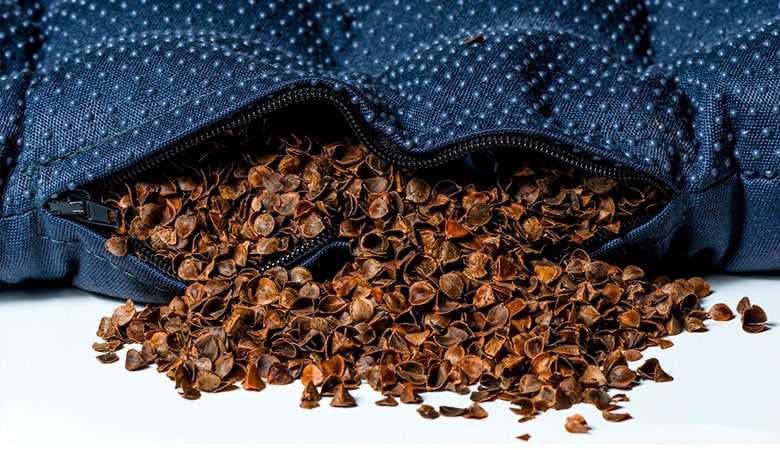
This pillow is made from buckwheat and is especially liked for its ability to stay cool during hot nights. The buckwheat hulls allow for better air circulation as you sleep, thus regulating heat during the night.
The natural air circulation is convenient if you get too hot at night; however, they can be quite firm and might not be for you if you prefer something soft to lie on at night.
2. Hemp
Hemp is a great cotton alternative that’s already used to make clothes, rope, and other items. When woven or spun into pillow stuffing, it gives the same soft feel as cotton; however, it’s firmer.
This makes it ideal if you prefer a not-so-fluffy pillow, but it does get softer with use. What’s great about hemp pillows is you get your money’s worth because it can last for a long time.
3. Horsehair

You might think this is an unusual pillow material, but it works out quite well. With an organic cotton cover on the outside and horsehair filling, this pillow is ideal for nighttime sweaters. The coarse horsehair is naturally springy and elastic, meaning it will support you and retain its shape as you sleep.
This pillow offers a firmer feel but one that’s softer than buckwheat. This means it can stand up to regular use and stay dry. It’s also said to be great for people who have arthritis because of its anti-rheumatic properties.
4. Wool
Wool has been used as an alternative pillow material for as long as it has been in existence. Regarded for its soft plush feel, it’s loved because it always pops back up and doesn’t stuff down like cotton does over time.
This, in turn, gives you more support throughout the night. What’s even better it wicks away sweat but retains warmth meaning it will keep you dry and warm during those cold nights.
5. Kapok

Kapok fiber is similar to silk derived from the Kapok tree. Despite being a soft material, it is firm, offering great support, and won’t mat down like cotton.
It is said to be hypoallergenic, meaning your allergies won’t act up as you sleep; however, there have been reports of users having allergic reactions to the seed’s pod. So before buying this pillow, ensure you test it out to see if you react to it.
6. Millet
You might have never thought of using millet as a pillow filling since all we do is eat it; however, just like buckwheat, millet is another seed alternative used to stuff pillows. The pillows are filled with millet hulls rich in silicic acid, which is said to help soothe muscle pain and stimulate your metabolism and immune system.
Millet pillows are great for you if you find buckwheat too firm, and some manufacturers allow you to refill or replace your filling for a custom fit. Some offer a buckwheat, millet blend that gives you the best of both pillows.
7. Duck down

These are the most popular pillow alternative for those with allergies to other feather-type pillows. They are made from smaller duck feathers, giving a more buoyant feel than regular feathers.
This makes them seem fuller and more comfortable, especially for side sleepers. Duck-down pillows offer great support despite being so soft; however, stomach sleepers don’t like them.
8. Green tea and silver infused
This is an odd pillow filling material, but it is an excellent pillow alternative. These pillows are great for nighttime sweaters, have antibacterial properties thanks to the green tea, and prevent odors from sweat.
The material combinations also stand up well to regular use while offering good support, making this a worthwhile investment.
9. Natural latex rubber
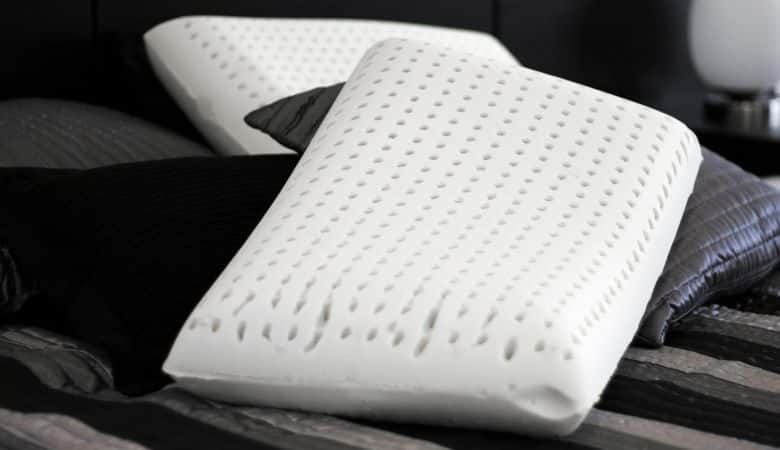
These pillows are a great memory foam alternative because they offer the same support but with fewer allergen triggers. Its antimicrobial qualities mean it is resistant to dust mites, mold, and other allergens, which means you can sleep without worrying about your allergies.
Natural latex rubber conforms to your body’s natural shape and sufficiently supports your spine. That said, they can get quite warm but most come with venting holes to dissipate body heat and sweat.
10. Natural shredded rubber
These pillows are quite similar to natural latex pillows, but instead of having a solid latex core, they are filled with shredded rubber.
This filling, however, makes them more puffed up than other pillows, but they are still a great memory foam alternative. They are also hypoallergenic, which is excellent if you suffer from allergies.
Things You Can Use Instead of a Pillow
Even with these natural pillow alternatives, you might need something else to get the comfort you need to sleep well.
This list includes items you can use in place of a pillow. Their different qualities can offer you some comfort a regular pillow can’t or come in handy when you can’t get your favorite pillow to sleep on.
1. Throw or weighted blankets

What marks these great pillow alternatives is the great support they offer and their ability to be easily manipulated for your utmost comfort.
You can easily mold a blanket into any shape you want so you can get support wherever you need it while sleeping in a comfortable nest. They are also very soft, so they can keep you warm during cold nights.
2. Stuffed animals
Stuffed animals are available in all shapes and sizes, from small ones to huge ones that can double up as body pillows.
While they are actually made for kids, comfort is comfort, and once you sleep on one, you’ll understand why kids love them so much.
The smaller ones are great for neck or knee support and come in handy when you need to elevate a particular area. Their plushness ensures you won’t get a sore neck as you sleep, and you feel like you are getting a big soft hug.
3. Chair cushions
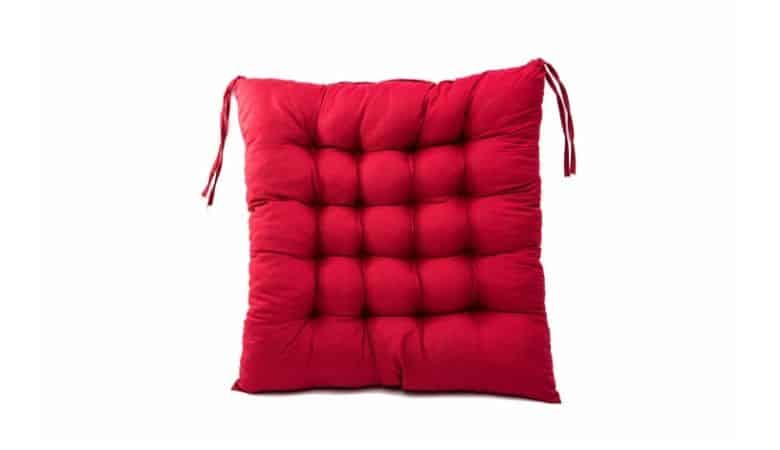
Chair cushions are designed to make seats more comfortable and are thin pillows made from various materials such as memory foam, cotton, foam, etc.
Since they are not too big, they are great for offering extra support, such as on your back, stomach, or neck. They can also be convenient when you are looking for something soft to support your head as you crash on the couch.
4. Travel pillow
These pillows are made to offer neck support during long journeys but can also be used to offer extra support as you sleep in your bed.
For instance, if you need something firmer under your neck, a travel pillow can fit the bill. Its small size ensures you get enough support and lift under your neck without affecting your shoulders.
5. Pregnancy pillow

Pregnancy pillows are designed or offer comfort to expectant mothers, but they can also be used as a pillow alternative.
They offer the same comfort and relief they give pregnant women and are perfect for any sleeping position. If you suffer from hip or back pain, pregnancy pillows offer great support to these areas allowing you to get comfortable enough to sleep through the night.
6. Body pillow
These pillows are quite similar to pregnancy pillows and are designed to offer whole-body support as you sleep.
Since they focus support around the hips, shoulders, and arms, they are great for side and stomach sleepers because they reduce pressure on these areas.
If you are in a fix and don’t have your trusty pillow, a body pillow can offer the same comfort and relief.
7. Wedge pillow
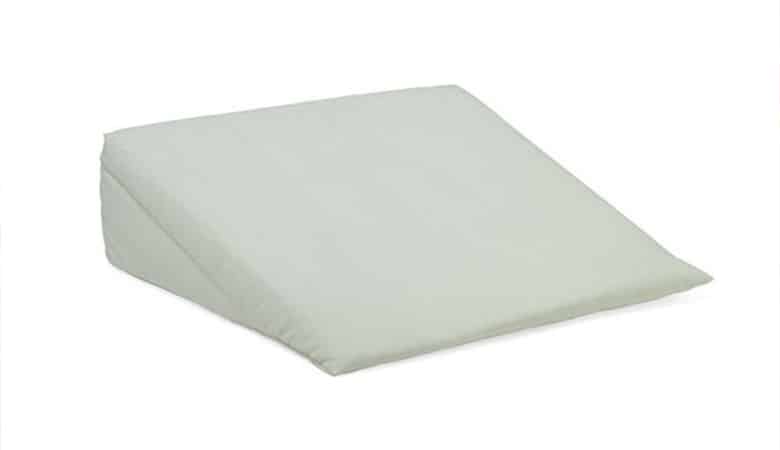
Wedge pillows are used to elevate a particular part of the body to ease pain, increase circulation, relieve pressure, acid reflux, or reduce snoring.
They can be made from polyfoam or memory foam, often in a triangular shape, so they stay in place throughout the night. These pillows are a great way to improve your sleep posture so you can use them in place of or with your other pillows.
8. Nursing pillow
These particular pillows are designed to offer extra support to mothers as they nurse and act as baby propping supports.
They are made from a fluffy plush material that is also firm, meaning they can double up as a pillow if needed. They are U-shaped, so your head fits in the middle, and they can go over and under your shoulder. It can be a great alternative if you need extra shoulder, head, or neck support.
How to Pick The Best Pillow
Most pillows look the same at first glance; additionally, manufacturers use the same terms, so it can be difficult to pick which one is right for you. However, understanding the primary factors that influence pillow performance can help you sort through the mess and know what to look for.
Here are several factors you should keep in mind while picking your pillow:
1. Fill
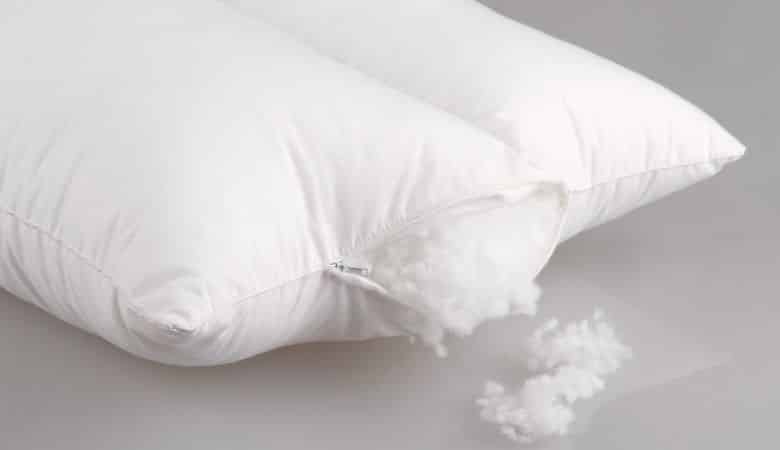
This refers to the material used to fill the pillow, and there are numerous options available. From cotton, memory foam, buckwheat, down, etc., each material has its pros and cons.
Some materials are hypoallergenic, firm, soft, cool, warm, etc. the type of pillow fill you choose will depend on what you want from your pillow.
For instance, if you are looking for a pillow with great neck support, memory foam, latex, hemp, horsehair, and buckwheat are great options.
2. Your sleeping position
Whether you are a side, back, or stomach sleeper, there’s a perfect pillow for you out there. While there are no standard rules for which pillows to go for since everyone changes positions as they sleep, here are a few broad guidelines.
Side sleepers need a firm pillow that’s thicker on the side. Stomach sleepers require a really soft pillow or no pillow at all, while back sleepers need a flatter pillow or pillow alternative to maintain your head and spine alignment.
3. Firmness

The more packed a pillow is, the former it will feel and vice versa. That said, there are materials such as down alternatives that can be tightly packed without getting inherently firmer.
4. Support
The support a pillow offers is determined by its fill, firmness, and contouring ability.
For instance, down pillows offer medium-level support, while buckwheat offers firmer support. This makes buckwheat pillows ideal if you are looking for a more supportive pillow to bolster your neck.
5. Price

Pillows can cost anywhere from a few dollars well into the hundreds depending on their material and build. You want to balance between quality and price, but don’t shy away from getting the right pillow because it costs more. They often offer great value for money.
Conclusion
Finding the perfect pillow or pillow alternative is all up to you and your needs. However, these options are a great place to start your hunt for the perfect pillow alternative. The most important thing you should keep in mind is that the perfect pillow should offer support and relief while feeling cozy.
